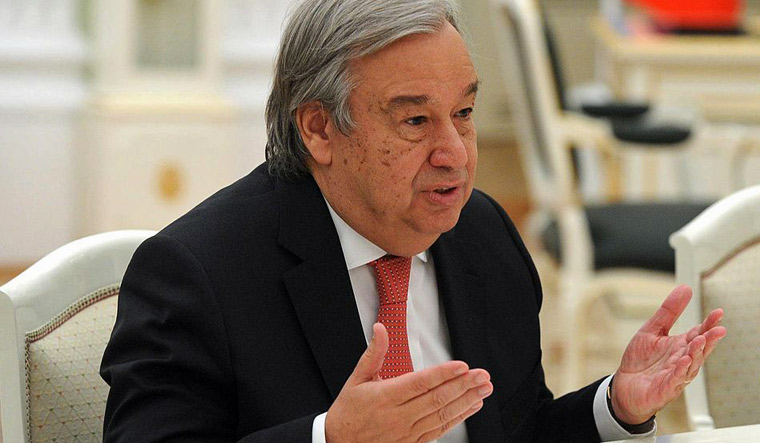United Nations Secretary-General Antonio Guterres on Wednesday issued a grave warning on the state of humanity’s battle against climate change, noting that the way mankind is progressing now, it appears we are at war with Nature. And Nature always strikes back.
“We are facing a devastating pandemic, new heights of global heating, new lows of ecological degradation and new setbacks in our work towards global goals for more equitable, inclusive and sustainable development,” he said, during an address to Columbia University.
“To put it simply, the state of the planet is broken. Dear friends, Humanity is waging war on nature. This is suicidal. Nature always strikes back—and it is already doing so with growing force and fury. Biodiversity is collapsing. One million species are at risk of extinction.
Ecosystems are disappearing before our eyes. Deserts are spreading. Wetlands are being lost. Every year, we lose 10 million hectares of forests.”
“Oceans are overfished -- and choking with plastic waste. The carbon dioxide they absorb is acidifying the seas. Coral reefs are bleached and dying. Air and water pollution are killing 9 million people annually – more than six times the current toll of the pandemic.”
“And with people and livestock encroaching further into animal habitats and disrupting wild spaces, we could see more viruses and other disease-causing agents jump from animals to humans. Let’s not forget that 75 per cent of new and emerging human infectious diseases are zoonotic.”
Pointing to the action needed going forward, he said the science is crystal clear. To limit temperature rise to 1.5-degrees Celsius above pre-industrial levels, the world needs to decrease fossil fuel production by roughly 6 per cent every year between now and 2030. Instead, the world is going in the opposite direction — planning an annual increase of 2 per cent,” he said.
He called for action, noting that while there was a “ray of hope” in the form of a COVID-19 vaccine, there “is no vaccine for planet”. “Nature needs a bailout. In overcoming the pandemic, we can also avert climate cataclysm and restore our planet. This is an epic policy test. But ultimately this is a moral test,” he said.
To address the climate emergency, he pointed out three imperatives:
“First, we need to achieve global carbon neutrality within the next three decades.
Second, we have to align global finance behind the Paris Agreement, the world’s blueprint for climate action. Third, we must deliver a breakthrough on adaptation to protect the world – and especially the most vulnerable people and countries -- from climate impacts.”
A few positive moves have been taken. He noted how the European Union has committed to become first climate neutral continent by 2050, saying he expected it would decide to reduce its emissions to at least 55 per cent below 1990 levels by 2030.
“The United Kingdom, Japan, the Republic of Korea and more than 110 countries have committed to carbon neutrality by 2050. The incoming United States administration has announced exactly the same goal. China has committed to get there before 2060. This means that by early next year, countries representing more than 65 per cent of global carbon dioxide emissions and more than 70 per cent of the world economy will have made ambitious commitments to carbon neutrality,” he said, adding that we must “turn this momentum into a movement.”







